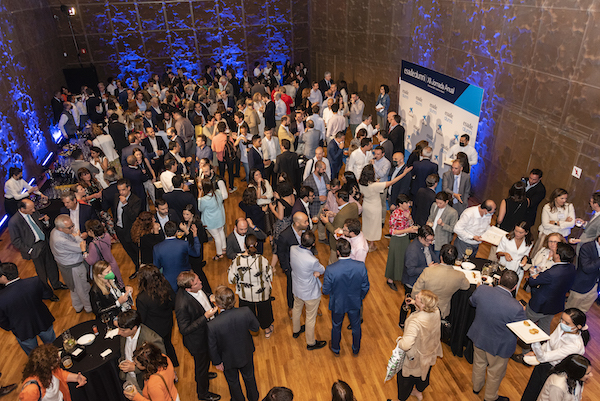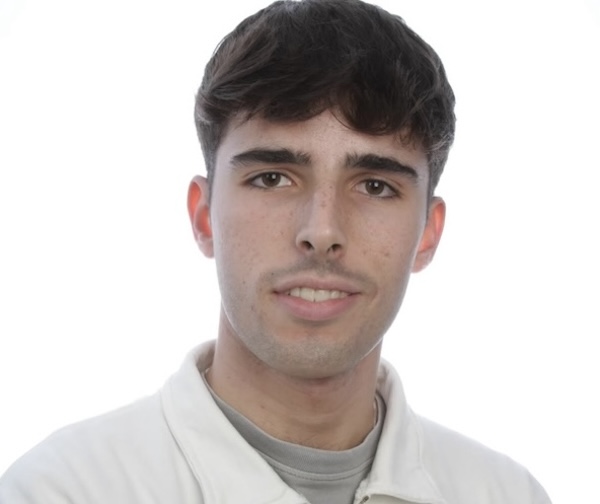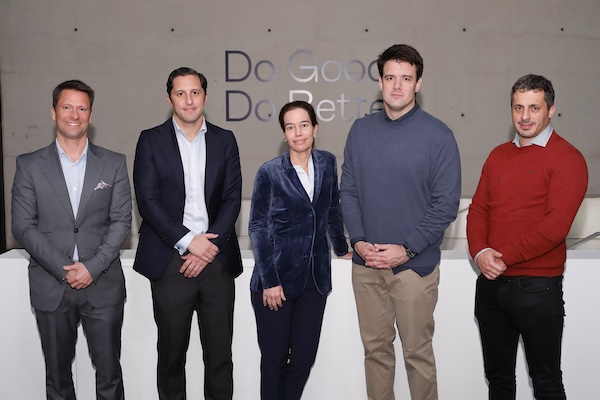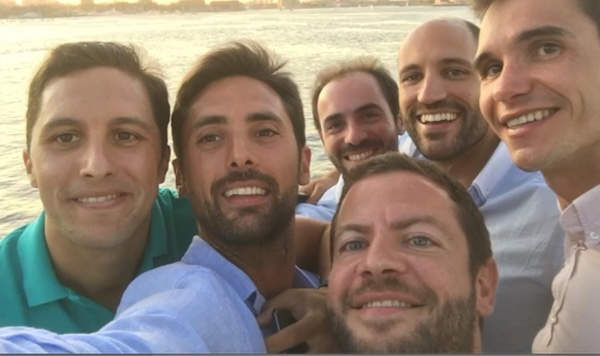BAlumni enjoyed a conversation between Javier Solana and Anna Bosch in a session entitled “Global Challenges in a New Geopolitical Landscape”
On 26th May, CaixaForum Madrid hosted the 12th edition of the Esade Alumni Annual Conference to be held in the city, which also offered attendees the option of participating virtually. During the conference, alumni had the chance to enjoy a conversation between Javier Solana, President of the Center for Global Economy and Geopolitics (EsadeGeo), and Anna Bosch, international correspondent at RTVE, in a session entitled “Global Challenges in a New Geopolitical Landscape”.
Belén Moreu (MBA ‘99), President of Esade Alumni, welcomed the attendees and delivered some introductory remarks, in which she thanked CaixaBank for supporting the conference – the first of its kind to be held in person since 2018 – as a sponsor and financial partner. She began her remarks by highlighting the problems currently facing society: “It is more important than ever to be active. We can no longer sit still. We are a community of 67,000 people who have been educated in the same way, with the same values, with a common goal. We are responsible leaders who want to have an impact on both business and society.”
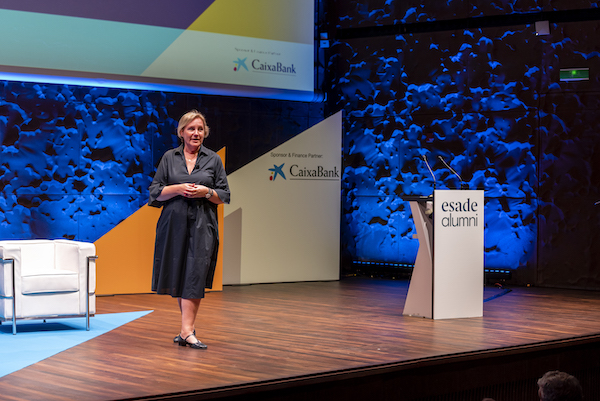
She then introduced the conference’s special guest speaker, Javier Solana, and the issues he would be discussing with regard to the geopolitical context and the global challenges facing the world: the war in Ukraine, climate change, migration, European security and the NATO summit to be held in Madrid in late June. Taking the stage alongside Solana was Anna Bosch, who introduced the topics of discussion and shared her views as a correspondent for RTVE.
Three months of war in Europe
The most prominent topic of discussion, without a doubt, was the war in Ukraine. In addition to Russia’s invasion and the refugee crisis it has unleashed, the war in Ukraine has changed the global landscape: a war is once again unfolding on European soil, China has emerged as a major player, energy is the “Achilles heel of the European Union” and NATO’s role in the world has changed.
Javier Solana began his remarks by providing an overview of several historical milestones that explain how we reached this point: the fall of the Berlin Wall in 1989, the collapse of the Soviet Union in December 1991, the NATO-Russia pact, and the emergence of a former KGB agent, Vladimir Putin, as one of then-President Boris Yeltsin’s most trusted men, and who would gradually take Yeltsin’s place.
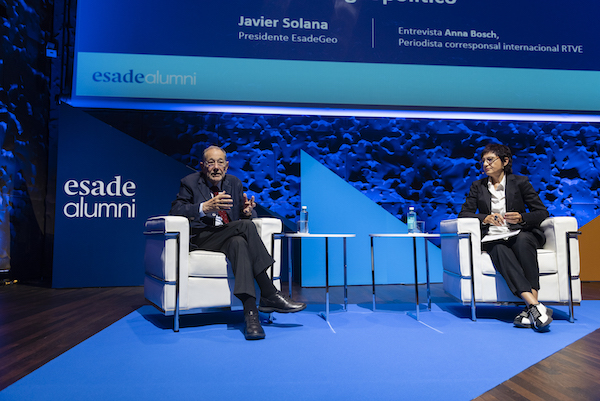
“What happened? Putin made an unwelcome statement: the worst thing that happened in the 20th century was the breakup of the Soviet Union. Encapsulated in that sentence is everything that followed thereafter. Of the former Soviet Republics, he is particularly interested in Ukraine, so he is focused on Ukraine not moving away from Russia.”
According to Putin, the worst thing that happened in the 20th century was the breakup of the Soviet Union. Encapsulated in that sentence is everything that followed thereafter.
In 1991, Ukraine was a nuclear power. It signed a non-proliferation treaty in exchange for assurances that its sovereignty and borders would be respected. The guarantors of this agreement were the United States, Russia, Britain, France and China. In the 2004 election, Putin hoped for the victory of a Russia-friendly candidate, but this did not happen. Putin’s subsequent intervention in negotiations surrounding a minor treaty between the European Union and Ukraine led to the invasions of Crimea and the Donbas. “This is the groundwork for the current war,” commented Solana. “It was expected to begin with the seizure of Kyiv and be over in 24 hours. The president of Ukraine was supposedly going to be deposed and a Putin-friendly puppet government would be installed. And none of this happened. It was a military failure on the part of Russia and a defence success on the part of the citizens of Ukraine.
Consequences in Europe and across the globe
Javier Solana and Anna Bosch went on to discuss the consequences of the invasion. They spoke about the food crisis that could affect many countries, given that Ukraine has lost its access to the sea, the channel through which it used to export 30% of the world’s food supply. Regarding the role of the sanctions imposed on Russia, which are isolating the country from the West, Solana underscored the “harshness” of some measures that had never been applied before, such as preventing Russian banks from operating in the international system. At the same time, US President Joe Biden has asked Congress for large sums of money to arm the Ukrainians, raising the spectre of a US-Russia war on Ukrainian territory and stoking fears that Russia may be “willing to use nuclear weapons if necessary”. Solana emphasised the role of all EU countries in working to ensure that this does not come to pass: “Security issues are increasingly Europeanised, so we are becoming more and more important – and not just the big countries, like France and Germany. All countries have a new responsibility for security.”
Other topics discussed included the crisis of Ukrainian refugees, who are being taken in by other European countries, and, of course, Europe’s dependence on Russian energy – described as “the EU’s great Achilles’ heel” – and the moral dilemma facing Germany, which continues to purchase Russian gas. However, Solana argued that Russia will face serious difficulties finding new buyers for the gas now flowing to Europe when other alternatives become available.
Security issues are increasingly Europeanised, so we are becoming more and more important
Undoubtedly, a ceasefire is the most desired outcome in Ukraine. Solana and Bosch discussed the role that China might play in helping to reach a diplomatic solution. In any event, “the world is going to be completely different because the fundamental consensus has been shattered and the structures of globalisation have been broken,” Solana warned. “Globalisation is not working; the world’s biggest port – the port of Shanghai – has been closed for several months because of the pandemic, and this is causing a serious economic problem.”
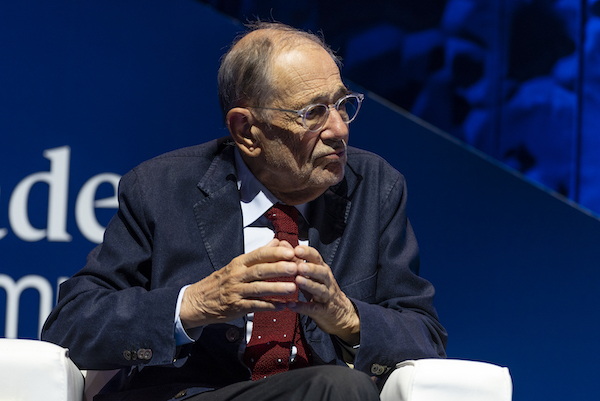
The NATO summit in Madrid and the role of Spain
A historic NATO summit, scheduled to take place in Madrid in late June, will focus on the integration of Sweden and Finland into the Alliance. If this expansion comes to pass, it will mean an additional 1,500 kilometres of border between NATO and Russia. “That’s a lot of kilometres,” declared Solana. “The decision by these countries to stop being neutral, which they have always been, has a lot to do with what has happened. These are very serious, solid countries, and they did not hesitate.” Bosch shared a striking figure: “In two months, Finland went from 50% in favour of NATO membership to 76% in favour.”
The Madrid meeting coincides with the 40th anniversary of Spain’s NATO membership, which integrated Spain into international institutions. The greatest benefit of NATO membership, in Solana’s opinion, has without a doubt been for the Spanish Armed Forces. “Today, the military family is what it should be: technical, English-speaking, they know how to do peace missions, they do it well and they are proud of their role,” said Solana. “They have been on missions in other countries; they have been commanders of military operations outside our borders.”
Javier Solana wrapped up his remarks by echoing Belén Moreu’s call to action: “The Spanish moment is very interesting. We have to be able to do things. We can’t just talk; we have to act. And the Esade family has a certain obligation to society that it must fulfil.”
The last institutional speech of the day, by Mario Lara, Director of Esade Madrid, focused on the post-pandemic joy and excitement of returning to in-person events like this conference, in addition to other campus events that have been held recently. His first reflection was directed at the alumni in attendance: “The time we spent here had an impact. It transformed some part of us, causing us to identify as Esade alumni. We have incorporated this notion into our social and personal lives. It is up to us to ensure that the impact of this community continues to grow.”
As is now traditional, the conference ended with an informal networking cocktail, where discussion continued on topics such as the complex global outlook for companies and professionals.
